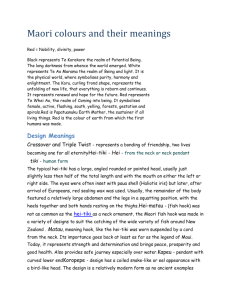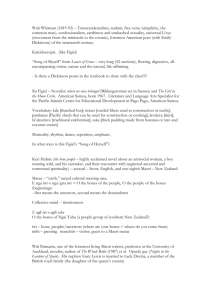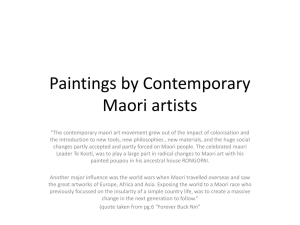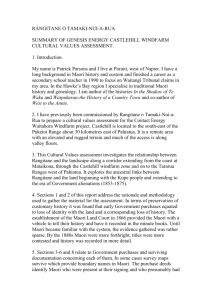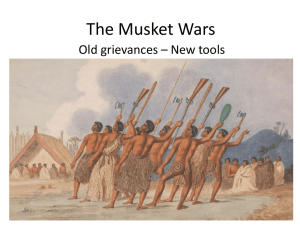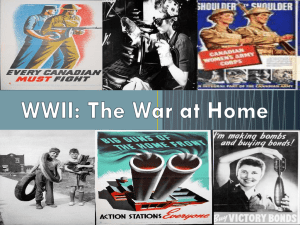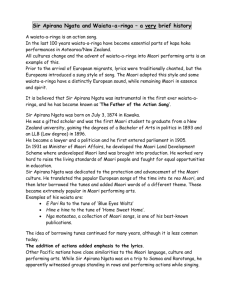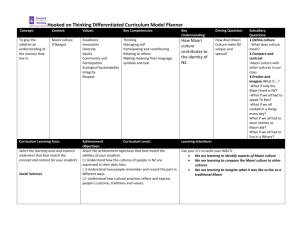White man`s war? To serve or not
advertisement
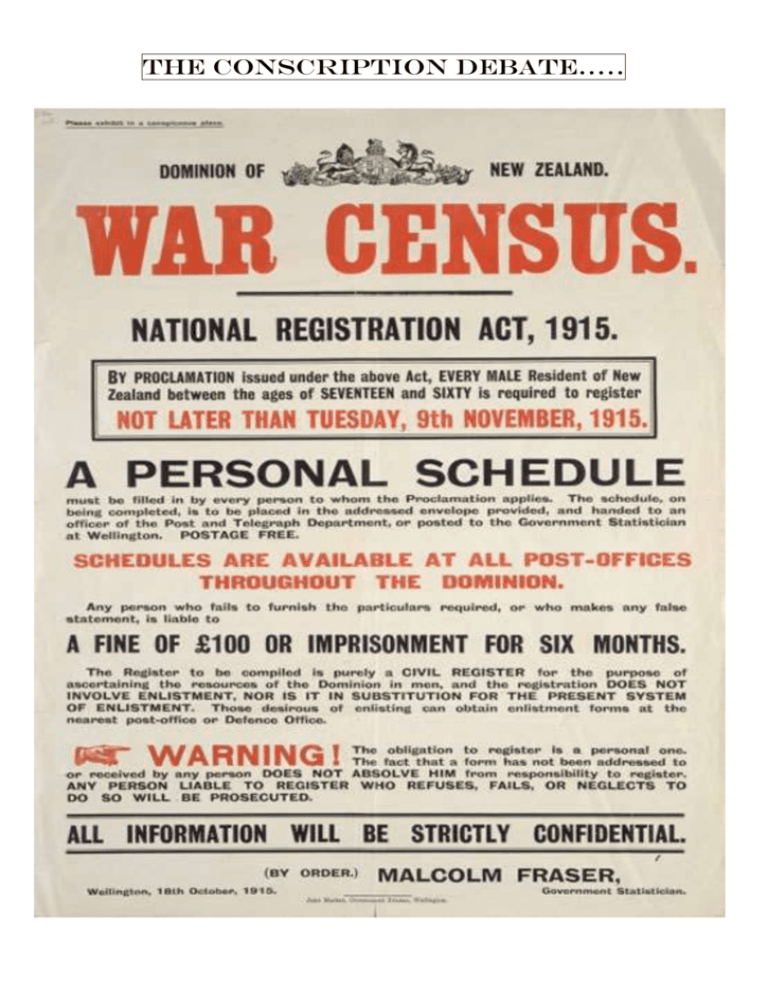
The conscription debate….. White man's war? To serve or not The four Maori MPs were united in their support for Maori participation in the war. The MP for Northern Maori, Te Rangi Hiroa (Peter Buck), led by example and volunteered for service. He sailed with the first contingent in February 1915. He hoped that a wider sense of patriotism might break down the negative aspects of tribalism, which he believed was a handicap to Maori development. Apirana Ngata, MP for Eastern Maori, believed involvement would strengthen Maori claims for equal status with Pakeha. Imperial policy opposed the idea of 'native peoples' fighting in a war among Europeans. There were fears that they might turn on their colonial masters or cause embarrassment by expecting equal treatment with European soldiers. When it was suggested that Maori be sent to garrison the newly captured German Samoa, New Zealand Administrator Robert Logan cabled the government to say that this might be provocative to the Samoan population. Instead, the Native Contingent of about 500 men left Wellington for Egypt on 14 February 1915. During the early stages of the First World War there were frequent references to the 'Maori Contingent'. Officially it was called the Native Contingent. The use of the term 'native' in reference to Maori was not dropped from official use until 1947, largely on the initiative of Prime Minister Peter Fraser who was also the Minister of Native Affairs. Some historians argue that it was in battle that many New Zealanders saw Maori not only as soldiers but as individuals for the first time. (Others note that Maori and non-Maori men had been playing rugby together for decades.) It was perhaps ironic that these New Zealanders had to go to Gallipoli and France to find out about themselves and each other. www.nzhistory.net.nz Conscription is the compulsory enlistment of people in some sort of national service, most often military service. The modern system of near-universal national conscription for young men dates to the French Revolution in the 1790s, where it became the basis of a very large and powerful military. Most European nations later copied the system in peacetime, so that men at a certain age would serve 1–3 years on active duty, then transfer to the reserve force. In China, the State of Qin instituted universal military service following the registration of every household. This allowed huge armies to be levied, and was instrumental in the creation of the Qin Empire that conquered the whole of China in 221BC. Conscription is controversial, because of conscientious objection to service, or political objection to service for a disliked government, or an unpopular war, and because it violates individual rights. Those conscripted may evade service, sometimes by leaving the country. www.wikipedia.org Did you know… In the USA conscription is referred to as ‘the draft’. Hence, young men are drafted into a war. Prior to WWII Hitler used conscription to ensure he built an armed force to take on Europe after the Germans were defeated in WWI. Countries where conscription exists today…. Afghanistan • Any and all men above the age of 18 for as long as needed. Albania • Any and all men above the age of 18 for one to three years depending on the branch of the armed forces. Algeria • Any and all men above the age of 19 for six months (or longer if needed). Angola • Any and all men from 18 to 50 (some reports put the youngest age at 16). Women of the same age ranges with "special qualifications of interest to the armed forces." Note: those over 30 serve only in the reserve force. No mandated minimum or maximum length of service. Bolivia • Any and all men between the ages of 19 and 21 for one year (or more in times of war). … for the full list go to http://teenadvice.about.com/library/weekly/aa030203f.htm From the site…. http://digital-photography-school.com/forum/general-chit-chat/190256-conscription-good-thing.html Switzerland has mandatory conscription for every able bodied man between the age of 18 and 41 (Why 41 I don't know) without a criminal record. Each man has to go and so 6 weeks of Army training each year.. He also has to have in his house, a semi automatic rifle and a pistol and 72 rounds of ammunition. (I think that's probably 2 clips for each) In exchange for this, they get a small pay from the government and free rail travel while in uniform, companies in Switzerland have to allow their employees this time in addition to 4 weeks holiday a year by law. If you don't wish to go in the army, you can choose to volunteer for a community work.. Clearing the winter roads, keeping the hedgerows litter free or choosing to work with disabled people, prisons etc.

